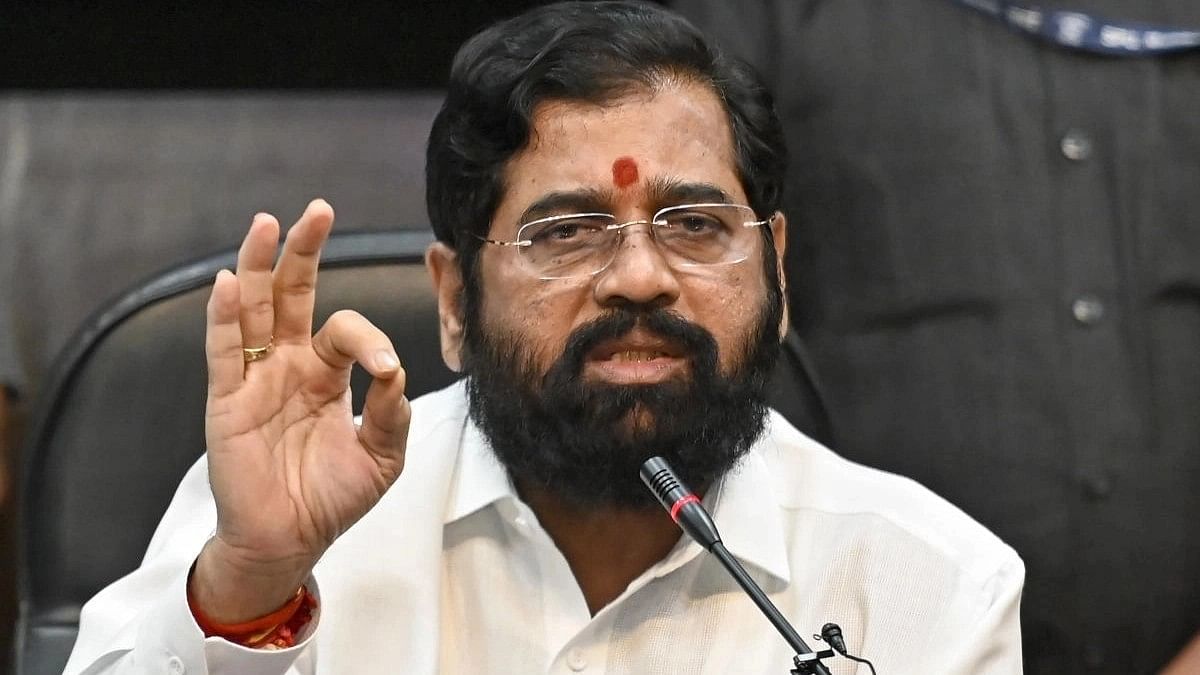
Maharashtra CM Eknath Shinde.
Credit: PTI File Photo
New Delhi: The Supreme Court has decided to consider on January 24, 2024, a curative petition filed on behalf of the Maharashtra government against the judgment that had struck down a state law providing 12 per cent to 13 per cent quota for Maratha community.
A bench of Chief Justice of India D Y Chandrachud and Justices Sanjay Kishan Kaul, Sanjiv Khanna and B R Gavai fixed the curative petition for circulation on January 24, 2024.
The curative petition was filed by Chief Minister Shinde after rejection of the review petition on April 11, 2023.
It is seen as the last legal resort on the issue. Like the review petition, curative petition is decided through circulation of papers inside the judges' chamber.
On April 11, 2023, the apex court had dismissed a plea for review by the Maharashtra government against the May 5, 2021 judgement.
A five-judge bench had then rejected the state government's petition for having a relook at the judgement.
The top court had earlier also dismissed a plea by the Centre to reconsider the May 5, 2021 judgement which also deprived States of their power to consider OBCs for the purpose of reservation in jobs and education. The top court had then conferred the President with the sole power to identify a community as backward.
The court had then upheld the validity of 102 Amendment, giving constitutional rights to National Commission for Backward Classes. The court had also declared that Sates do not have the power to prepare lists for socially and educationally backward classes.
In its judgement, the court had struck down the Maharashtra Socially and Educationally Backward Classes (SEBC) Act, 2018, for having breached the 50 per cent cap fixed by a nine-judge bench in 1992 in Indra Sawhney case (Mandal Commission). It had also found no exceptional circumstances or extraordinary situation to allow 12-13 per cent quota for Maratha community.
